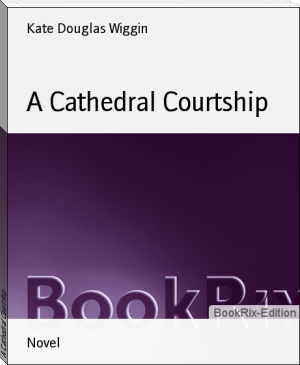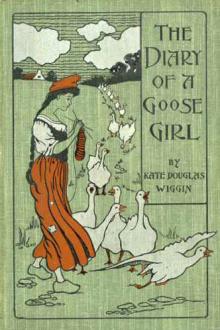The Arabian Nights - - (inspirational books to read txt) 📗

- Author: -
- Performer: -
Book online «The Arabian Nights - - (inspirational books to read txt) 📗». Author -
The princess of Deryabar found the sultan at the palace gate waiting to receive her: he took her by the hand and led her to Pirouzè's apartment, where a very moving scene took place. Codadad's wife found her affliction redouble at the sight of her husband's father and mother; as, on the other hand, those parents could not look on their son's wife without being much affected. She cast herself at the sultan's feet, and having bathed them with tears, was so overcome with grief that she was not able to speak. Pirouzè was in no better state, and the sultan, moved by these affecting objects, gave way to his own feelings and wept. At length the princess of Deryabar, being somewhat recovered, recounted the adventure of the castle and Codadad's disaster. Then she demanded justice for the treachery of the princes. "Yes, madam," said the sultan, "those ungrateful wretches shall perish; but Codadad's death must be first made public, that the punishment of his brothers may not cause my subjects to rebel; and though we have not my son's body, we will not omit paying him the last duties." This said, he directed his discourse to the vizier, and ordered him to cause to be erected a dome of white marble, in a delightful plain, in the midst of which the city of Harran stands. Then he appointed the princess of Deryabar a suitable apartment in his palace, acknowledging her for his daughter-in-law.
Hassan caused the work to be carried on with such diligence, and employed so many workmen, that the dome was soon finished. Within it was erected a tomb, which was covered with gold brocade. When all was completed, the sultan ordered prayers to be said, and appointed a day for the obsequies of his son.
On that day all the inhabitants of the city went out upon the plain to see the ceremony performed. The gate of the dome was then closed, and all the people returned to the city. Next day there were public prayers in all the mosques, and the same was continued for eight days successively. On the ninth the king resolved to cause the princes his sons to be beheaded. The people, incensed at their cruelty toward Codadad, impatiently expected to see them executed. The scaffolds were erecting, but the execution was respited, because, on a sudden, intelligence was brought that the neighbouring princes who had before made war on the sultan of Harran, were advancing with more numerous forces than on the first invasion, and were then not far from the city. This news gave new cause to lament the loss of Codadad, who had signalised himself in the former war against the same enemies. The sultan, nothing dismayed, formed a considerable army, and being too brave to await the enemies' attack within his walls, marched out to meet them. They, on their side, being informed that the sultan of Harran was marching to engage them, halted in the plain, and formed their army.
As soon as the sultan discovered them, he also drew up his forces, and ranged them in order of battle. The signal was given, and he attacked them with extraordinary vigour; nor was the opposition inferior. Much blood was shed on both sides, and the victory long remained dubious; but at length it seemed to incline to the sultan of Harran's enemies, who, being more numerous, were upon the point of surrounding him, when a great body of cavalry appeared on the plain, and approached the two armies. The sight of this fresh party daunted both sides, neither knowing what to think of them; but their doubts were soon cleared; for they fell upon the flank of the sultan of Harran's enemies with such a furious charge, that they soon broke and routed them. Nor did they stop here; they pursued them, and cut most of them in pieces.
The sultan of Harran, who had attentively observed all that passed, admired the bravery of this strange body of cavalry, whose unexpected arrival had given the victory to his army. But, above all, he was charmed with their chief, whom he had seen fighting with a more than ordinary valour. He longed to know the name of the generous hero. Impatient to see and thank him, he advanced toward him, but perceived he was coming to prevent him. The two princes drew near, and the sultan of Harran, discovering Codadad in the brave warrior who had just defeated his enemies, became motionless with joy and surprise. "Father," said Codadad to him, "you have sufficient cause to be astonished at the sudden appearance of a man whom perhaps you concluded to be dead. I should have been so, had not Heaven preserved me still to serve you against your enemies." "O my son," cried the sultan, "is it possible that you are restored to me? Alas! I despaired of seeing you more." So saying, he stretched out his arms to the young prince, who flew to such a tender embrace.
"I know all, my son," said the sultan again, after having long held him in his arms. "I know what return your brothers have made you for delivering them out of the hands of the black; but you shall be revenged to-morrow. Let us now go to the palace where your mother, who has shed so many tears on your account, expects to rejoice with us on the defeat of our enemies. What a joy will it be to her to be informed that my victory is your work!" "Sir," said Codadad, "give me leave to ask how you could know the adventure of the castle? Have any of my brothers, repenting, owned it to you?" "No," answered the sultan; "the princess of Deryabar has given us an account of everything, for she is in my palace, and came thither to demand justice against your brothers." Codadad was transported with joy, to learn that the princess his wife was at the court. "Let us go, sir," cried he to his father in rapture, "let us go to my mother, who waits for us. I am impatient to dry her tears, as well as those of the princess of Deryabar."
The sultan immediately returned to the city with his army, and re-entered his palace victorious, amidst the acclamations of the people, who followed him in crowds, praying to Heaven to prolong his life, and extolling Codadad to the skies. They found Pirouzè and her daughter-in-law waiting to congratulate the sultan; but words cannot express the transports of joy they felt when they saw the young prince with him: their embraces were mingled with tears of a very different kind from those they had before shed for him. When they had sufficiently yielded to all the emotions that the ties of blood and love inspired, they asked Codadad by what miracle he came to be still alive.
He answered that a peasant mounted on a mule happening accidentally to come into the tent where he lay senseless, and perceiving him alone and stabbed in several places, had made him fast on his mule, and carried him to his house, where he applied to his wounds certain herbs, which recovered him. "When I found myself well," added he, "I returned thanks to the peasant, and gave him all the diamonds I had. I then made for the city of Harran; but being informed by the way that some neighbouring princes had gathered forces, and were on their march against the sultan's subjects, I made myself known to the villagers, and stirred them up to undertake his defence. I armed a great number of young men, and heading them, happened to arrive at the time when the two armies were engaged."
When he had done speaking, the sultan said: "Let us return thanks to God for having preserved Codadad; but it is requisite that the traitors who would have destroyed him should perish." "Sir," answered the generous prince, "though they are wicked and ungrateful, consider they are your own flesh and blood: they are my brothers; I forgive their offence, and beg you to pardon them." This generosity drew tears from the sultan, who caused the people to be assembled, and declared Codadad his heir. He then ordered the princes, who were prisoners, to be brought out loaded with irons. Pirouzè's son struck off their chains, and embraced them all successively with as much sincerity and affection as he had done in the black's castle. The people were charmed with Codadad's generosity, and loaded him with applause. The surgeon was next nobly rewarded in requital of the services he had done the princess of Deryabar and the court of Harran remained thereafter in perfect joy and felicity.
THE STORY OF SINBAD THE VOYAGERIn the reign of the Caliph Haroun-al-Raschid, there lived at Bagdad a poor porter called Hindbad. One day, when the weather was excessively hot, he was employed to carry a heavy burden from one end of the town to the other. Having still a great way to go, he came into a street where a refreshing breeze blew on his face, and the pavement was sprinkled with rose water. As he could not desire a better place to rest, he took off his load, and sat upon it, near a large mansion.
He was much pleased that he stopped in this place; for the agreeable smell of wood of aloes, and of pastils, that came from the house, mixing with the scent of the rose-water, completely perfumed the air. Besides, he heard from within a concert of instrumental music, accompanied with the harmonious notes of nightingales. This charming melody, and the smell of savoury dishes, made the porter conclude there was a feast within. His business seldom leading him that way, he knew not to whom the mansion belonged; but to satisfy his curiosity he went to some of the servants, whom he saw standing at the gate in magnificent apparel, and asked the name of the proprietor. "How," replied one of them, "do you live in Bagdad, and know not that this is the house of Sinbad the sailor, that famous voyager, who has sailed round the world?" The porter, who had heard of this Sinbad's riches, lifted up his eyes to Heaven, and said, loud enough to be heard: "Almighty creator of all things, consider the difference between Sinbad and me! I am every day exposed to fatigues and calamities, and can scarcely get barley-bread for myself and my family, whilst happy Sinbad expends immense riches and leads a life of pleasure. What has he done to obtain a lot so agreeable? And what have I done to deserve one so wretched?"
Whilst the porter was thus indulging his melancholy, a servant came out of the house, and taking him by the arm, bade him follow him, for Sinbad, his master, wanted to speak to him.
The servants brought him into a great hall, where a number of people sat round a table, covered with all sorts of savoury dishes. At the upper end sat a venerable gentleman, with a long white beard, and behind him stood a number of officers and domestics, all ready to attend his pleasure. This personage was Sinbad. The porter, whose fear was increased at the sight of so many people, and of a banquet so sumptuous, saluted the company trembling. Sinbad bade





Comments (0)